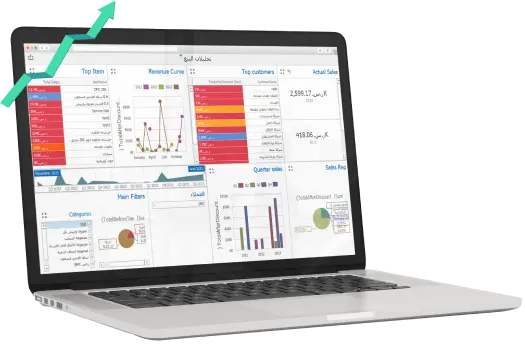Accounting treatment of capital processes
The accountant must be aware with recording capital in the accounting books of joint-stock companies
The recording capital in the accounting books of joint-stock companies is based on the terms and conditions contained in the preliminary contract, the company's article of association and the recording capital of joint-stock company are either by
1- Issue of Equity Share on Lump Sum Basis
2- Issue of Shares on Installment Basis
3- Recording Capital in the case of providing In-kind Shares
First, Accounting Treatment for Issue of Equity Share on Lump Sum Basis
If the company’s contract and articles of association stipulates the collection of the nominal value of the share at one time, it is agreed with a bank authorized to receive the subscription and this is on behalf of the company at it is a joint-stock company open for subscription and not a closed joint-stock company, after the subscription is closed and the share's nominal value is collected, the subscription is closed in the company's capital account, there are, of course, issuance costs and the founders subscribe to some of the company's capital and the rest shares are offering shares for public subscription through banks
Example: Issue of Equity Share on Lump Sum Basis
One of the joint-stock companies was formed with a capital of 10 million pounds divided into a number of shares with a nominal value equal to the value of 1000 pounds. The founders subscribed to a quarter of the company's capital and offering the rest of the company's shares for public subscription through one of the banks, and there is an amount of 5 pounds, share issue costs
First, the founders subscribe to a quarter of the company's capital
Company capital = 10000000
Share value = 1000
Number of shares = 100000/1000 = 10000 shares
Quarter value of shares = 10,000 * 25% = 2,500 shares
The value of the shares in which the founders will subscribe = 2500*1000 = 2500000 pounds
Issuance costs = 2500 x 5 = 12500
The journal entry is as follows
| Account | Debit | Credit |
| Bank | 2512500 | |
| Founders | 2500000 | |
| For Issue Costs | 12500 |
For the rest of the shares and subscribers
The number of remaining shares for subscription = 7,500 shares
The value of shares that subscribers will purchase
= 7,500*1000 = 7500000
Issuance costs = 5 x 7500 = 37500
The journal entry is as follows
| Account | Debit | Credit |
| Bank | 7537500 | |
| Subscribers | 7500000 | |
| For Issue Costs | 37500 |
After this, the founders account and subscribers in the equity share capital account is closed
| Account | Debit | Credit |
| Founders | 2500000 | |
| Subscribers | 7500000 | |
| Equity Share Capital | 10,000,000 |
Closing the For Issue Costs account in Issuance Costs
| Account | Debit | Credit |
| Issuance Costs | 50,000 | |
| For Issue Costs | 50,000 |
Recording of issuance expenses paid by the company
| Account | Debit | Credit |
| Issuance Costs | 50,000 | |
| Bank | 50,000 |
It is best for joint-stock companies to get their capital according to their financial needs. At the beginning of the company, the company announces the date of the subscription and the bank that will undertake the subscription process
After that, individuals and companies wishing to buy shares apply to the bank and get the subscription application, in which the number of shares they wish to purchase is specified, and the subscription installment is paid upon writing the application, which is like a purchase presentation from the shareholder, and the company then sorts the subscription applications and share allotment and refunding the excess, if any
And there are in some cases where the subscription in the number of shares is greater than the shares offered, and the excess amounts are required to be refunded. The accounting treatment is as follows
| Account | Debit | Credit |
| Subscribers | XXX | |
| Bank | XXX |
Second / Accounting Treatment for Issue of Shares on Installment Basis
The law allows joint-stock companies to issue capital shares in installments in order to be able to collect the capital in installments according to the company needs for the funding needed for the activity
Each shareholder in a joint-stock company opens the subscription in its capital of individuals and other legal persons, complete the subscription form prepared by the company showing the number of shares that he wants to purchase and he has an acquisition presentation of stocks and to ensure the joint-stock company, the seriousness of the application to it, it requires the subscribers to pay an application money and is refunded to him if the subscription application is rejected
If the joint-stock company accepts to some of the subscription applications to it with their subscription installments and share allotment to the subscribers, it requires to pay a new installment known as the allotment money and the company's acceptance of some subscription applications and share allotment as an acceptance of the presentation to it, which results in the appearance of or the contractual relationship between it and the subscribers, as for unacceptable subscription applications, the value of the paid installments is refunded to the owners, thus, there is no contractual relationship between the company and them
After share allotment to the subscribers and the company collects the allotment money, it determines the value of the rest of the installments, such as the first call money, the second call money, the final call money, and when the company requests any of these installments; it sends written requests to shareholders in which each shareholder explains the required installment value and date of payment.
Thus, the collection of the nominal value of shares in installments results in the appearance of a set of installments accounts that are considered clearing accounts, i.e. they appear in the books upon the request of installments and then close after the collection of installments and these accounts are:
Application Money A/c
Allotment Money A/c
First Call Money A/c - Second Call Money A/c
Final Call Money A/c
In the event that the joint-stock company issues several types of preferred stocks other than common shares, the same installment accounts are opened, but especially for the preferred stocks
Some shareholders may pay more than they are required, which leads to prepaid installments appear or some of them fail to pay some of the installments required of them, which leads to late installments appear, some shareholders may refrain from continuing to pay installments either for their own financial inability or for not investing in the company, and then the joint-stock company resorts to one of two decisions:
1- Selling shares of who are delinquent or cancelling those shares of delinquent shareholders and then reissued them
Detailed data on subscription and allotment must be prepared and detailed data should be prepared on the collection schedules the first call money, second call money, and final call money
If the company system allows for the nominal value of the share to be paid on scheduled and value-specific installments, the first installment called application money and is considered as a request issued by the subscribers for buying a share of the shares and the second installment called allotment money
Example:
On 1-1-2006, a joint stock company was established with a capital of ten million pounds, divided into ten thousand shares, and the shares were offered for public subscription. The company's system stipulates that the nominal value of the share be paid in several installments
Nominal Value of Shares = Paid-up Share Capital / Number of Outstanding Shares
= 100000/10000 = 1000 pounds
Payments are in installments as follows
50% of the share's nominal value is paid from the first January to its end
The journal entry is as follows
| Account | Debit | Credit |
| Bank | 5,000,000 | |
| Equity Share Application | 5,000,000 |
(Subscription value in 10,000 common shares and 50% of their value paid)
When the founders agree to accept some or all of the subscription applications, the accepted subscription installments are transferred to capital account
| Account | Debit | Credit |
| Share Application | 5,000,000 | |
| Equity Share Capital | 5,000,000 |
(10,000 common shares worth 1,000 pounds per share were issued and 50% of their value paid)
As for subscription applications not accepted by the founders, the installments paid with them are refunded to their owners by a reversing journal entry of the first journal entry
Second, when the founders request the subscribers to whom the shares have been allotment to pay the allotment money before a certain date, then we have an account, which is the allotment money account, which is a debit account in the sense that it expresses the debt of the shareholders whose subscription in the company’s capital has been accepted and therefore the capital account appears as a credit before the actual collection of these installments and the reason for this is the existence of a contractual relationship between the company and the shareholders that makes them legally obligated to pay the allotment money and the subsequent installments upon request
It is 20% of the nominal value of the stock and is paid from mid-March to the end
The journal entry on 1st March, 2006
| Account | Debit | Credit |
| Equity Share Allotment | 2,000,000 | |
| Equity Share Capital | 2,000,000 |
On receipt of allotment money before the end of March, the journal entry is as follows
| Account | Debit | Credit |
| Bank | 2,000,000 | |
| Equity Share Allotment | 2,000,000 |
On making call for the call money due
First Call Money A/c expresses the debt of shareholders to the company with the value of the first call money under the contractual relationship between the two parties
| Account | Debit | Credit |
| Equity Share First Call | XXX | |
| Equity Share Capital | XXX |
On receipt of call money, the journal entry is as follows
| Account | Debit | Credit |
| Bank | XXX | |
| Equity Share First Call | XXX |
(The journal entry of shareholders who have to pay value of the first call money for a share)
Final call money due:
| Account | Debit | Credit |
| Equity Share Final Call | XXX | |
| Equity Share Capital | XXX |
The final call money expresses the shareholders' debt to the company for this value of final call money, once the company requests to collect this installment under the contractual relationship between the parties as we have already indicated
Final call money received:
| Account | Debit | Credit |
| Bank | XXX | |
| Equity Share Final Call | XXX |
Third: Recording Capital in the case of providing In-kind Shares:
In-kind shares are all tangible assets acquired by the joint-stock company in the established stage and must be evaluated objectively and fairly and this can be achieved through the use of the office of valuation professionals and this valuation is approved by the Capital Market Authority
The stocks issued for in-kind shares are called in-kind shares as opening capital- in kind shares A/c
By its value so that it appears on the balance sheet independent of capital stocks to be paid in cash and the law requires the value of in-kind shares be fully paid, i.e. at one-time payment
And if the in-kind shares provided to the company are lower than the nominal value of the in-kind shares become debtors to the company and commit to pay the difference in cash based on the company's request and on the date of selected for that
Capital Reduction
When the capital of the joint-stock company is reduced by a decision of the extraordinary general meeting based on the proposal of the board of directors, the company contract is changed in accordance with the reduction process, so a report must be submitted by the auditor about the reasons to reduce capital and reasons for the joint-stock company to reduce its capital and the reasons are as follows
1- There is capital in excess than the company needs/ when the capital is greater than the investment costs required by the project, the company is reducing capital especially if shareholders have not yet paid the full value of the outstanding shares so as to avoid paying dividends for unused funds to show the real rate, the profits and invested funds.
2- The company achieves large losses/ when the company achieves high losses, thus, it is difficult to dividends to common shareholders, thus, there is a fall in shares prices, the company should reduce its capital by the value of those losses at the end of every quarter or year and companies auditing their financial statements, the financial statements are changed based on the change in line items.
3- Valuation of companies’ assets and liabilities other than their real value/ when a company's assets valuation at book value are more than their real value or liabilities valuation are less than their real value, in this case the company's profits are inappropriate for its capital, which leads to a decline the stock value of the company in the stock exchange.
How to Reduce Capital
1- The nominal value of the stock is reduced as the value of the stock is not fully paid the shareholder is exempt from paying the remaining amounts from the stock value, in this case there is no accounting treatment if the value of the shares is fully paid, and portion of share capital is being refunded and the journal entries are as follows:
First, recording the decision to reduce
| Account | Debit | Credit |
| Share capital account | XXX | |
| Capital reduction account | XXX |
Second, recording the refund
| Account | Debit | Credit |
| Capital reduction account | XXX | |
| Bank | XXX |
2- Reducing the number of shares while the par value remains constant
This is by the fact that the company is refunding all the value paid in cash on a certain number of shares selected for by reducing the number of shares each shareholder has by a certain percentage
3- The company buys its shares from the market/ these are called shares which the company is repurchasing (Treasury Shares)









